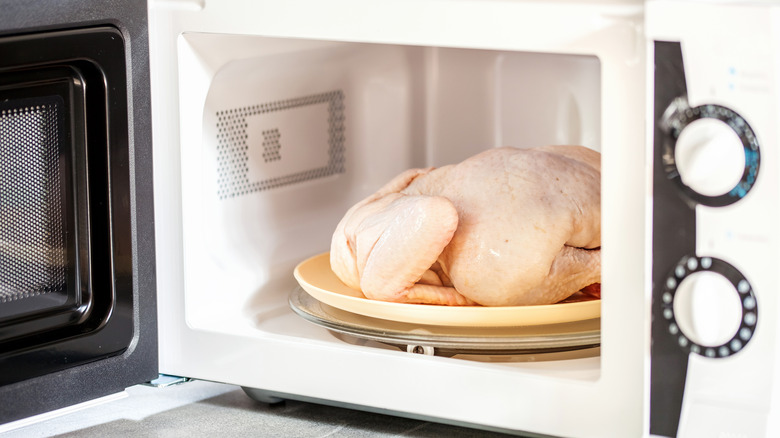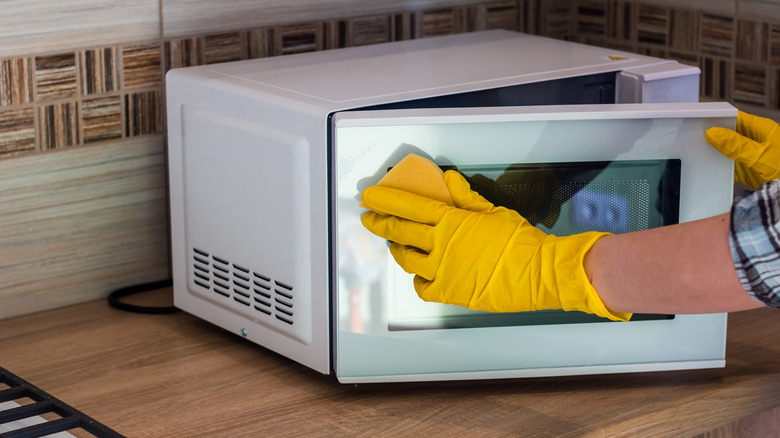Why It's Important To Clean Your Microwave After Thawing Frozen Food
How often do you clean your microwave? Chances are, it's not enough. Sawinery founder Robert Johnson advises homeowners to clean their microwave at least once a week, setting aside a specific day to prioritize it (via Best Life). Additionally, keeping your microwave clean helps to extend its operating life, per Abe Navas, manager of a Texas-based cleaning service, Emily's Maids. "Microwaves often get replaced because people don't know how to clean them and [wonder] why they are not working as they used to," Navas says. The process of cleaning is simple, leaving little room for excuses. According to Navas, all it takes is water combined with soap, lemon, or vinegar.
Unsurprisingly, the public had mixed thoughts when a Quora user asked how often people clean their microwave. One person chooses to clean it until it's absolutely necessary. "[You should clean it] as soon as you notice it looks dirty, or smells like food," the comment read. Another, though, agrees with the experts that "spill[s] or splatter[s] should be wipe[d] up immediately." Is it really necessary, though, or is it something that's simply recommended and a bit of an overkill?
Water is a breeding ground for bacteria
As it turns out, the experts have hit the nail on the head with this one, especially after using your microwave to thaw something. According to WebMD, users should clean out their microwaves every time it's used to defrost food. For one, it's nearly impossible to prevent meat juices from leaving behind residue, which not only causes cross contamination but also makes the interior messy in general. Secondly, keeping it unclean leads to bacteria growth that could potentially be harmful.
When water drips from frozen food, it can leave a puddle at the bottom of the microwave, similar to how steam can drip when food is heated. According to cleaning expert Mark McAuley, this is one of the main reasons for bacteria growth, per Best Life. "Water alone left sitting at room temperature will encourage the growth of mold and bacteria," he says. When water is already present in the microwave, the next batch of food's steam will mix in with it. "This creates an environment of cross contamination since, as that steam settles — some produced by old food, some produced by the new — it will not discriminate," he continues. You're definitely not in the wrong for thawing food in a microwave, as it's a better choice than a countertop. But for the safest possible practice, you should at least wipe down your microwave every time it's used.

